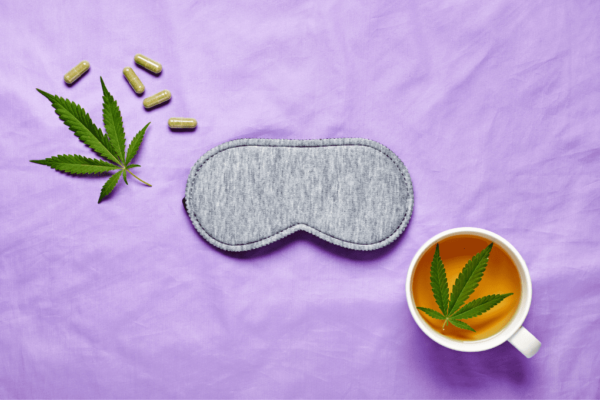CBD Gummies, Guides
Ultimate Guide to CBD Gummies
In recent years, CBD products have gained immense popularity due to their potential to provide natural relief for various ailments. They come in a variety of flavours, shapes and strengths, making them an enjoyable option for all, and are a convenient method of consumption.
Among the wide range of CBD products available, CBD gummies have emerged as one of the most predominant options for users. In this ultimate guide, we will explore how these CBD gummies have potential health benefits, and may be used to aid with discomfort, anxiety levels, improved sleep, anti-inflammatory, neuroprotection, seizures and alleviating nausea.

Understanding CBD and CBD Gummies
CBD, short for cannabidiol, is a natural extraction from the hemp plant. It is non-psychoactive, meaning it does not produce a “high” sensation, rather it produces more calming effects. CBD interacts with the body’s endocannabinoid system, a system which helps regulate various physiological functions such as your mood or immune response.
CBD is often used for a wide range of things, such as to relieve pain or reduce inflammation. A common way CBD is introduced to the endocannabinoid system is through the consummation of CBD gummies. While there are a number of ways to take in CBD, gummies prove to have a number of advantages over these other methods. For example, gummies are much more convenient, as they are pre-dosed meaning you won’t have to calculate your dosage. They also have longer-lasting effects as they pass through your digestive tract and slowly release the CBD into your system.
CBD Gummies for Pain Relief
One of the most sought-after benefits of CBD gummies is their potential to provide pain relief. While scientific research is ongoing, many people have praised CBD gummies for alleviating their discomfort.
CBD interacts with the body’s endocannabinoid system, which is responsible for regulating various bodily functions, including pain perception. By interacting with cannabinoid receptors, CBD may help reduce aches and inflammation and provide a sense of relief.
CBD can be used to fight a variety of aches and pains, such as:
- Chronic Pains: CBD gummies can be used to potentially alleviate chronic conditions, such as arthritis, fibromyalgia, or lower back pain. CBD interacts with receptors in the endocannabinoid system, which play a role in regulating pain perception and inflammation.
- Muscle and Joint Pains: CBD gummies can be beneficial for addressing muscle and joint pain. CBD’s potential as anti-inflammatories may help to ease discomfort. Consuming CBD gummies may offer a convenient and targeted approach for managing localised pain.
- Headaches and Migraines: CBD gummies may help with constant headaches and migraines. Consuming CBD gummies during the onset of a headache or migraine may help provide relief or reduce the intensity of symptoms for some individuals.
- Neuropathic Pains: Neuropathic pain, which often results from nerve damage or dysfunction, can be challenging to manage. Some individuals have reported positive experiences using CBD gummies to potentially help neuropathic pain.

CBD Gummies for Sleep
Those who suffer with sleep disorders, such as insomnia, may turn to CBD to improve their sleep quality. Some individuals have claimed that CBD has helped them to relax and get a more restful sleep.
CBD’s interaction with receptors in the body that regulate your sleep cycles may contribute to helping such medical conditions. It’s important, however, that you find the right dosage for you. As everyone has a different sleep cycle, and others may suffer with more extreme cases of insomnia, each person will need to find the right strength and dosage timing for them.

CBD Gummies for Anxiety
Living with anxiety can be very stressful and challenging, due to this many sufferers have opted to turn to a natural remedy. CBD gummies have gained attention for their potential to help manage anxiety, some users have claimed that taking CBD gummies has helped them feel more relaxed and calm.
As CBD interacts with receptors that help to regulate moods and emotions, it is thought that it is able to promote a sense of calmness. Although you shouldn’t stop taking prescribed medication or therapy and replace them with CBD, it can be used as a complementary approach alongside these remedies. As always, check with your doctor before adding CBD products to your regimen.
CBD Gummies as Anti-inflammatory Agents
Inflammation is a natural immune response that happens when the body has been damaged or infected. It’s a vital process that helps the body to fight off harmful pathogens, however, inflammation can be an unpleasant process to bear. On top of that, some people suffer with prolonged or chronic inflammation, where the inflammation can last for weeks, months or even years. Managing this inflammation can be vital for the body, as it can reduce the likelihood of it leading to further issues such as tissue damage or impaired organ function.
In some cases, CBD has shown potential in inflammation remedy by interacting with the endocannabinoid system and influencing immune responses. It is currently being explored for its pain management properties in regards to chronic inflammation.
CBD Gummies for Neuroprotection
CBD gummies have also gained attention for their potential neuroprotective effects. This means that they may be able to help protect the health and function of the brain and nervous system.
Numerous studies have investigated the potential of CBD in aiding health conditions such as epilepsy, multiple sclerosis, Parkinson’s, Alzheimer’s and more. CBD’s potential anti-inflammatory, antioxidant, and anti-anxiety properties have sparked interest in its potential ability to aid with suffering caused by these diseases.
Since CBD has been found to have antioxidant properties, it is deduced that it may be able to help reduce oxidative stress and damage in the brain. It also has potential anti-inflammatory properties, which may help counteract neuroinflammation, a common feature in many neurological conditions.
While CBD gummies have shown promise in preliminary research, it’s important to note that they should not be considered a cure for any neurological conditions. If you are considering using CBD gummies for neuroprotection or managing specific neurological conditions, it’s essential to consult with your doctor. They can provide guidance tailored to your individual needs, help determine appropriate dosages, and ensure it aligns with your overall treatment plan.
CBD Gummies for Nausea
Nausea is one of the most common side effects of various illnesses or conditions, such as the flu, migraines, or anxiety. Most people will suffer with bouts of nausea at one point in their life, and although it often goes away on its own after several hours, sometimes it can persist or become too uncomfortable. This is where CBD gummies come in. While research is ongoing, evidence so far suggests that CBD’s interaction with certain receptors within the body may help reduce feelings of nausea and promote a more settled stomach. Although CBD should not be used to treat chronic or severe nausea, it can be used to potentially alleviate symptoms.

CBD Gummies for Seizures
Seizure disorders, such as epilepsy, are a neurological disorder caused by abnormal electrical activity in the brain. While there are a number of remedies available for such disorders, some people may experience intolerable side effects with such medications. This has led to a growing interest in exploring alternative approaches, including CBD.
CBD has shown promise in reducing seizure frequency and severity in certain forms of epilepsy, leading to the approval of a CBD-based medication for epilepsy treatment. It has the potential to reduce the frequency and severity of seizures, through interacting with various receptors in the brain and controlling excessive electrical activity that is associated with seizures.
Success Stories and Clinical Trials
There have been notable success stories and clinical trials highlighting the potential of CBD, including CBD gummies, in reducing seizures. One of the most well-known cases is that of Charlotte Figi, a young girl with Dravet syndrome, a form of epilepsy¹. Her story brought attention to the potential benefits of CBD in seizure management.
Clinical trials have also provided evidence of CBD’s anticonvulsant effects. For example, a randomised, double-blind, placebo-controlled study published in The New England Journal of Medicine² found that CBD significantly reduced seizure frequency in patients with Dravet syndrome.
Dosage
Determining the proper CBD dosage can vary depending on factors such as individual sensitivity, weight, and the severity and frequency of seizures. It’s important that you consult with a healthcare professional experienced in CBD use for epilepsy management. They can help establish a suitable dosage and provide guidance tailored to your specific needs.
Side Effects
CBD is generally considered safe, but some people may experience side effects. Common side effects of CBD may include fatigue, changes in appetite, dry mouth, and diarrhoea. CBD can also interact with certain medications, so it is essential to consult with a healthcare professional if you are taking other medications.
Our CBD Products
CBD gummies can provide a convenient and tasty way to potentially alleviate symptoms. From pain relief to anxiety management, improved sleep to alleviating nausea, these tasty treats have garnered attention for their potential in promoting well-being. They may also be able to help with other issues, such as high blood pressure or certain aspects 0f depression.
If you are suffering from any one of these conditions, why not give CBD gummies a try? Although CBD shouldn’t replace your usual medications, it can provide health benefits and a low-risk, natural, effective option in terms of symptom management. Remember to start with a low dose if this is your first time experimenting with CBD, and always consult your doctors if you are taking other medications alongside CBD.
References:
- Maa, E., & Figi, P. (2014). The case for medical marijuana in epilepsy. Epilepsia, 55(6), 783–786.
- Devinsky, O., Cross, J.H., Laux, L., Marsh, E., Miller, I., Nabbout, R., Scheffer, I.E., Thiele, E.A. and Wright, S., (2017). Trial of cannabidiol for drug-resistant seizures in the Dravet syndrome. New England Journal of Medicine, 376(21), pp.2011-2020.

